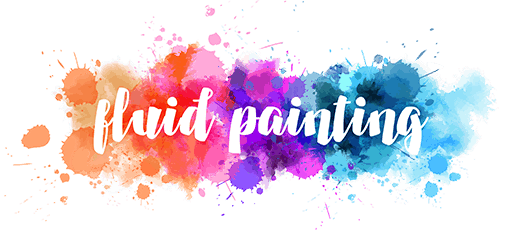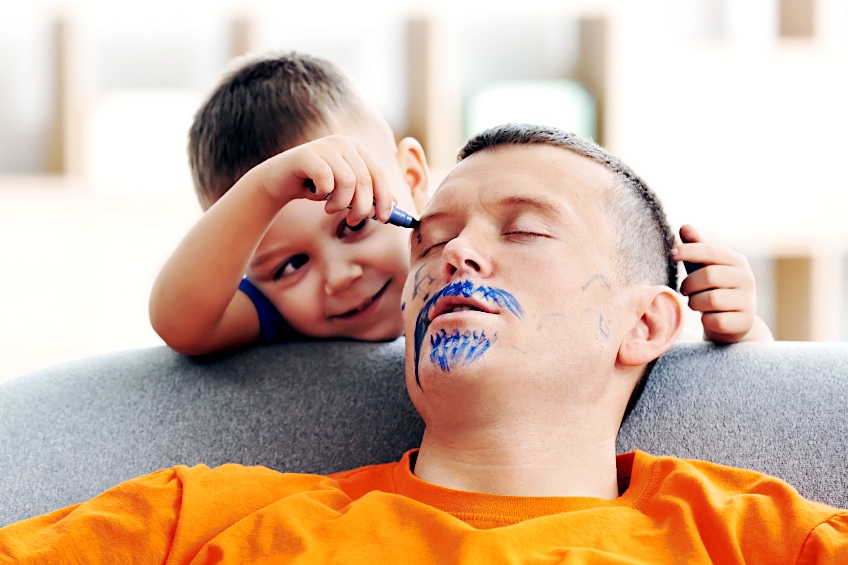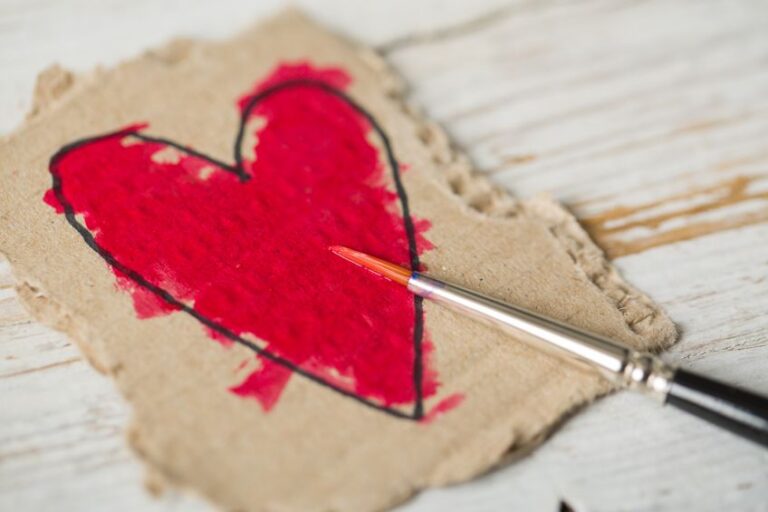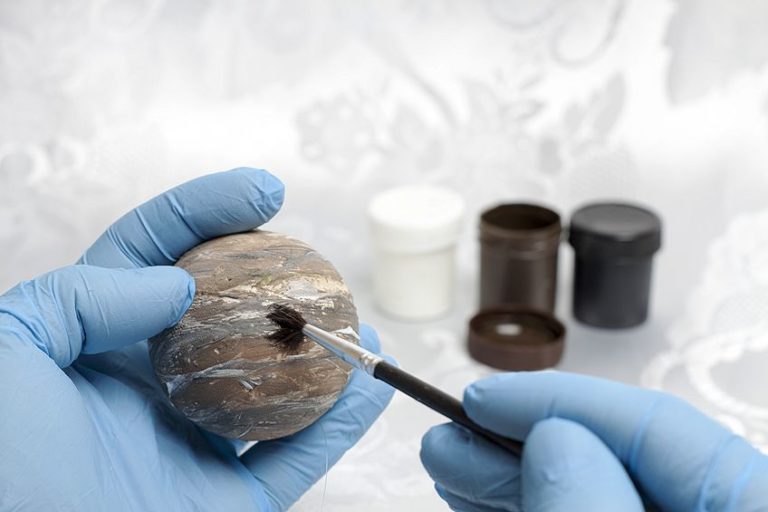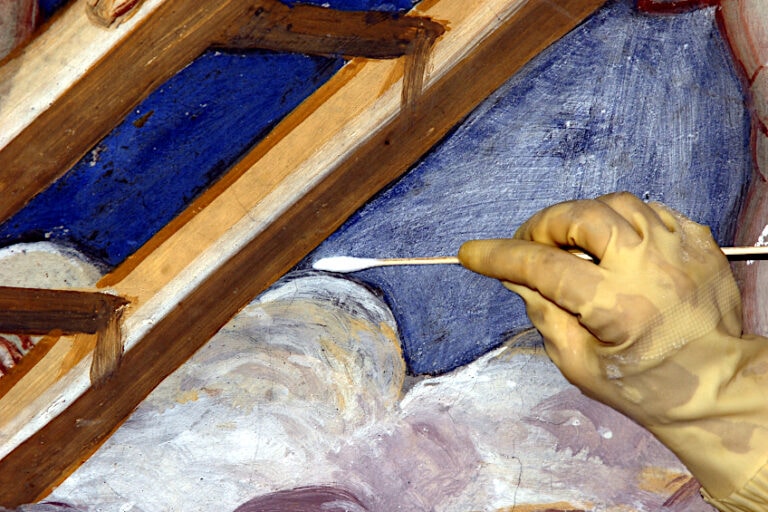How to Get Permanent Marker Off Skin – Easy Sharpie Stain Removal
This post may contain affiliate links. We may earn a small commission from purchases made through them, at no additional cost to you.
Permanent markers are some of the handiest items to have in your household, not to mention exciting to have in your arts and craft box. Permanent marker on skin may, however, be an annoying possibility. The tips and guidelines in this article will ease the frustration of trying to get permanent marker off skin.
Table of Contents
Permanent Marker on Skin
The safety of having permanent marker on skin is a common question and a legitimate concern. So it makes sense to address this now at the beginning of this article before we move on to how to get permanent marker off skin or how to remove Sharpie.
A permanent marker’s safety for use on the skin is based on its chemical composition. Some of the chemicals used in Sharpies and permanent markers are strong irritants (i.e. diacetone alcohol) while others are toxic and corrosive (i.e. n-butanol). Xylene is neuro-toxic and, if ingested, inhaled, or absorbed through mucous membranes or skin, it presents a significant risk of harm to organs.
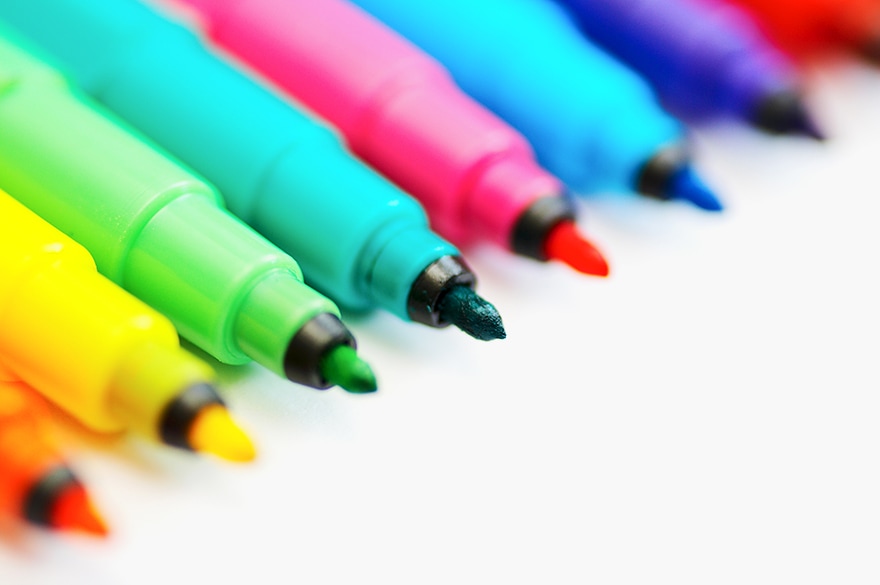
It is also important to note that Sharpie, for instance, does not endorse the use of their pens on skin. Some Sharpies such as the Fine Point Markers are non-toxic but should still not be used anywhere near your eyes and lips. However, we recommend avoiding Sharpies on the skin altogether. This should be easy enough since there are many exciting skin marker options available that are non-toxic, washable, and easy to use.
Keep in mind that personal skin sensitivities vary from person to person. Some skin types might even react to non-toxic markers so be sure to test these items on a small area of your skin before jumping straight into your next fun body art project.
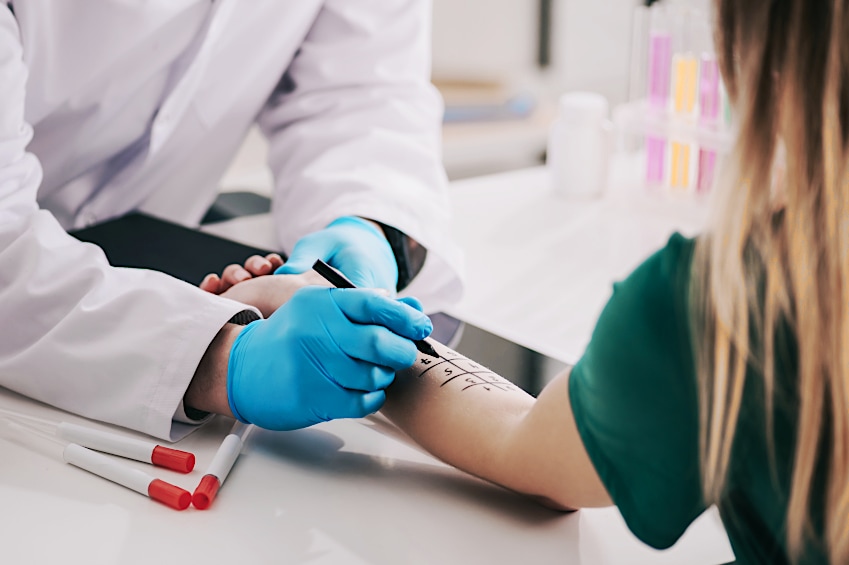
What Markers Are Safe for Use on Skin?
At this point, before we look at permanent marker removal, you may want to know what markers can be used on the skin without being harmful to health or leaving stubborn stains. There are quite a few skin-safe marker options that are non-toxic, washable, and, most importantly, specifically designed for use on skin. A good skin-friendly marker option depends on the purpose of your project or task. Here are a few options to consider:
- Surgical Markers: These are an ideal skin-safe and sterile option, perfect for drawing surgical, permanent make-up, and tattoo trace lines anywhere on the body. Surgical markers are also usually latex or plastic-free as well as water and sweat-proof.
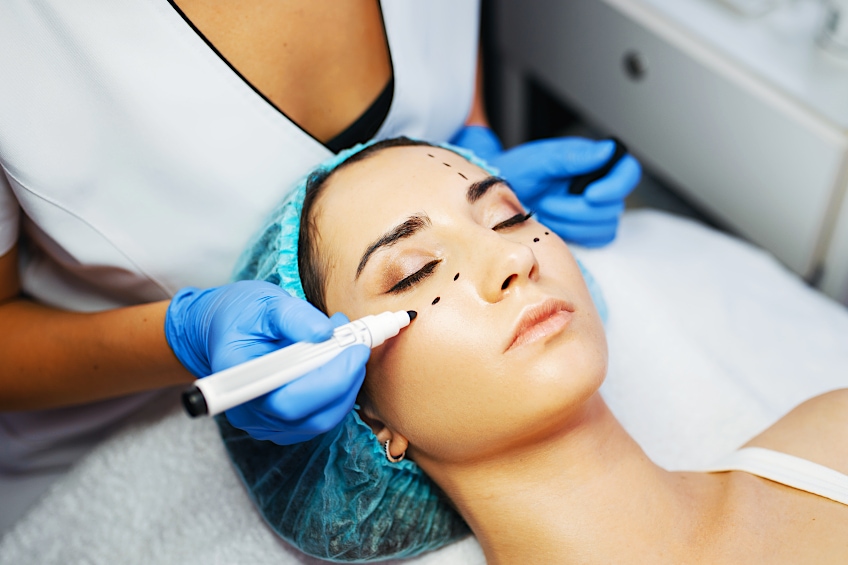
- Tattoo Markers: Temporary, non-toxic tattoo and body art markers are the way to go for covering large areas of skin with fun and creative designs for washing off later. These cosmetic-quality products are ideal for parties, festivals, sports events, and many other occasions.
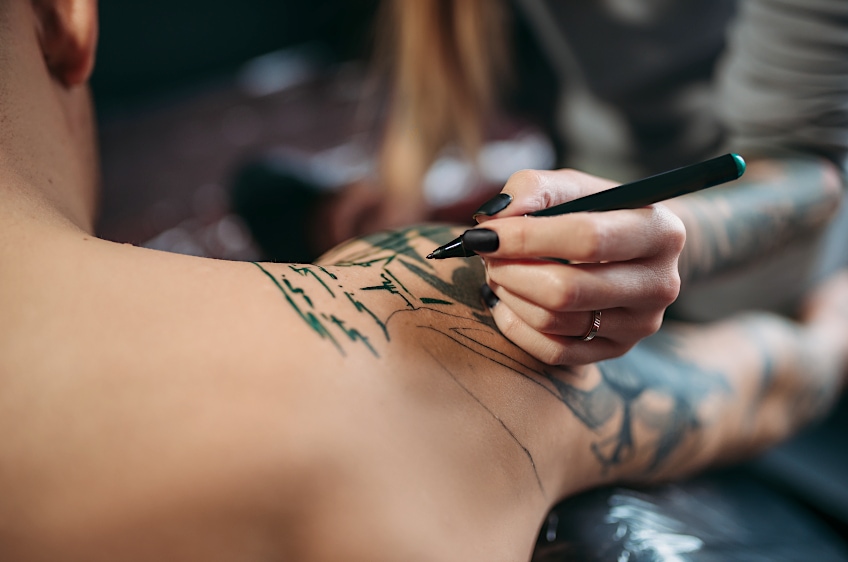
- Kids’ Face and Body Markers: A perfect stocking stuffer and a great way to give your kids the freedom to draw all over each other’s little faces and bodies without you having to worry about dangerous toxins or stubborn stains!
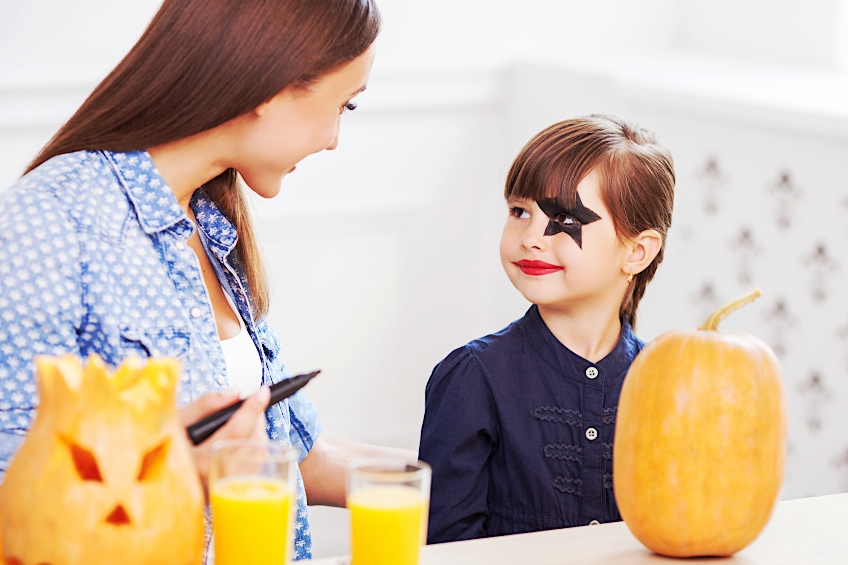
At the end of that sports event or festival – you will still want to wash off all that color. Keep reading for some tips and tricks on how to get permanent marker off skin or how to remove Sharpie.
Removing Permanent Marker from Skin
This is a brief overview that you can use as a guide on how to get permanent marker off skin. Some permanent marker removal methods and products are more effective than others, while some will be more appropriate for young or sensitive skin than others – all of which are indicated below.
| Product | Method | Effectiveness | Can It Be Used on Sensitive Skin? |
| Rubbing alcohol | Hold an alcohol-soaked cotton wool ball on the stain for a few seconds, wipe and repeat. Wash with warm water. | High | ✘ |
| Hairspray | Coat the stained area and rub it in until ink is dissolved. Wash with warm, soapy water. | High | ✘ |
| Bug spray | Apply generously, rub in until ink is dissolved. Wash with warm, soapy water. | High | Not ideal |
| Baking-soda-and- water paste | Rub on for 1 to 2 minutes, rinse off with warm water More effective with toothpaste added. | High | Not ideal |
| Coconut oil | Apply oil to washed skin, rub until the mark is removed, and then tissue off. | High | ✔ |
| Make-up remover or wipes | Rub with wipe or cotton wool until the mark is removed. Rinse with warm water. | High | ✔ |
| Nail polish remover | Hold a cotton wool ball soaked in the polish remover on the stain for a few seconds, wipe and repeat. Wash with warm water. | Medium | ✘ |
| Milk | Wipe the marked area with milk-soaked cotton wool and rinse. | Medium | ✔ |
| Hand sanitizer | Add a little onto the marked area and rub for 15 to 30 seconds. Rinse with warm water. Repeat until clean. | Medium | ✘ |
| Diluted bleach (1:7) | Rub the marked area with bleach-soaked cotton wool until removed, wash with warm water. | Medium | Not ideal |
| Stain remover | Apply to dry skin or cloth, rub the marked area, rinse and repeat until the mark is removed. | Medium | ✘ |
| Toothpaste and Mouthwash | Rub toothpaste over the marked area. Work in a little mouthwash with a cloth until the mark is dissolved. Wipe off residue with a clean, damp cloth. | Medium | Not ideal |
| Baby oil | Apply directly to the stain, rub with a cloth and repeat until it is removed. Wash with warm water. | Medium | ✔ (But not if the skin is acne-prone) |
| Sunscreen (Preferably spray-on and quick-drying) | Apply a thick layer to the marked area. Leave the cream on for a few seconds, rub with a cloth or paper towel and rinse with water. Repeat if necessary. | High | ✔ |
| Baby wipe | Rub the area with the wipe until the mark is removed. Rinse with warm water. | Medium | ✔ |
| Inside of banana peel | Rub the marked area with the piece of peel for several minutes. Rinse with water and repeat. | Medium | ✔ |
| Sea salt scrub (with water) | Rub with scrub for a few minutes and rinse off with warm water. | Low | ✘ |
| White cream toothpaste | Leave a thick layer of the toothpaste on damp skin for 1 to 2 minutes. Rub until the mark dissolved. Rinse with warm water. | Low (takes longer) | Not ideal |
| Soap and water (Better for removing non-permanent marker stains) | Soak in a warm bath with baking soda, tea tree oil, or bubble bath. Wash the marked area with warm, soapy water or scrub it with a loofah or sponge. | Low
| ✔ |
| Shaving foam | Apply the foam directly to the stained area and rub it in after 1 to 2 minutes. Repeat until the mark is dissolved. Rinse with warm water. | Low (takes longer) | Yes |
| Olive oil | Rub the oil into the marked area with a paper towel. Wash off with soap and water. Repeat if necessary. | Low | ✔ (But not if the skin is acne-prone) |
| Butter | Leave a thick layer on damp skin for 2 to 3 minutes. Rub until the mark is dissolved. Rinse with hot, soapy water. | Low (takes longer) | ✔ (But not if the skin is acne-prone) |
How to Remove Sharpie from Skin
It is always best to choose skin-friendly or specialized products for removing Sharpie from the skin. Below are a few suggestions on products and methods to consider when you need to remove that stubborn Sharpie stain from your skin quickly and without over-rubbing.

Using Sunscreen to Remove Sharpie
This is a great trick that is especially effective for removing permanent marker from skin. It is ideal for use on your children without scrubbing their skin raw or using not-so-skin-friendly substances that may cause reactions.
Step 1: Gather Your Supplies
- Sunscreen. Yes, this is unconventional but has been tried and tested for this very purpose. The best type of sunscreen to use for removing permanent marker or Sharpie from the skin is your clear, liquid, spray-on variety. Avoid cream-based sunscreens as they are not as effective.
- Paper towel. A soft washcloth will do as well.
- The stain: Grab your crazy, Sharpie-decorated kid and, with all three of these items in one place, you are ready to commence operation damage-control.
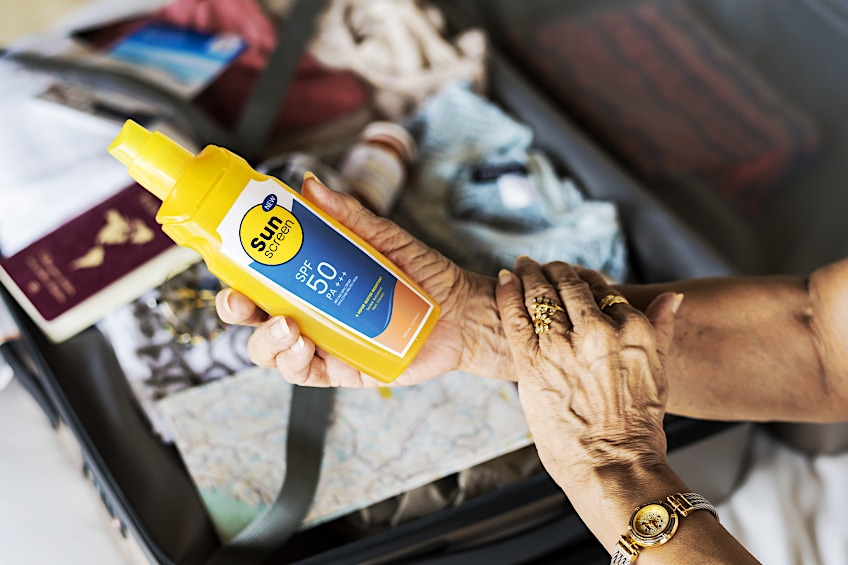
Step 2: Spray and Wipe… Voilà!
- Spray your selected sunscreen directly onto the stained area of the skin.
- Avoid mouths, eyes, and open scratches or wounds.
- Use your paper towel or a soft washcloth to wipe the sprayed area, removing the sunscreen and the Sharpie marks with it. Yes, it is that simple!
Specialized Permanent Marker Remover
Using a professional, specialized product like a permanent marker remover is a great non-toxic option, ideal for removing Sharpie marks (and many other tough stains) from any surface – including the skin. Simply follow the steps below to use successfully:
- Apply permanent marker remover directly to your skin or use a washcloth.
- Rub thoroughly.
- Rinse off with water or wipe off with a paper towel or washcloth.
- Repeat the above steps if necessary.
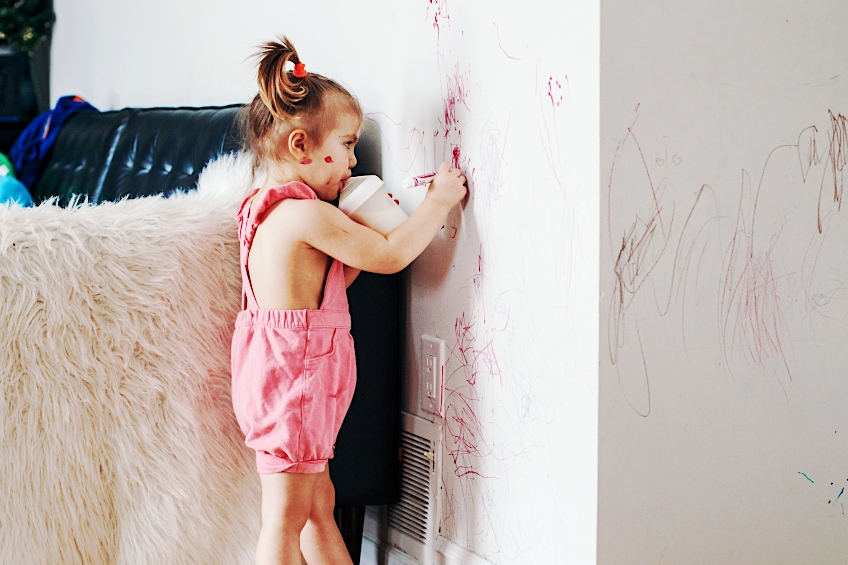
Hand Sanitizer
Who does not have sanitizer on hand these days? Since you will always have a product like this either on you or near you, it is a nice, quick go-to for removing those stubborn Sharpie stains from your hands! To remove permanent marker from the skin using an alcohol-based hand sanitizer simply:
- Apply a liberal amount of sanitizer directly onto the skin.
- Rub this area with your finger, using a circular action, for 15 to 30 seconds.
- Once you see the marker ink dissolving, rinse off with warm water.
- Tap dry and repeat if necessary.
- Alcohol-based wet wipes should do the trick as well.
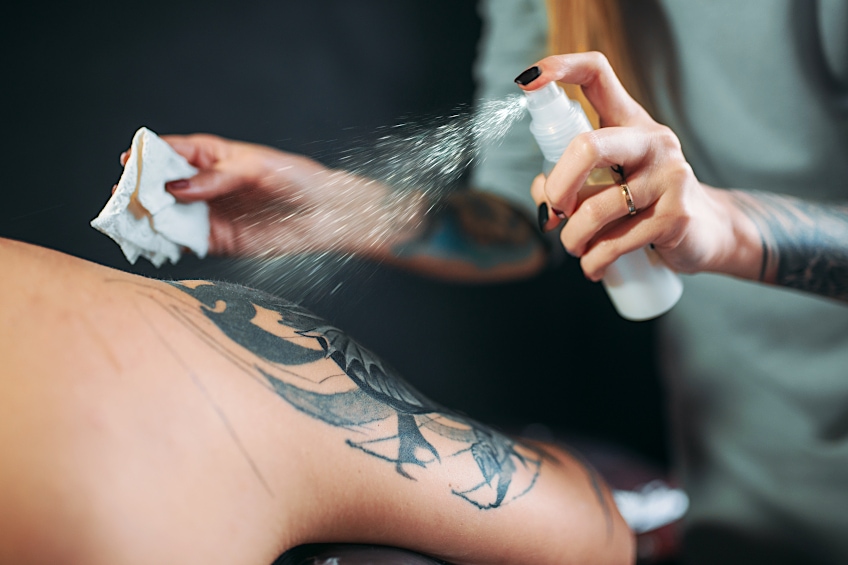
Rubbing Alcohol
Rubbing alcohol may be used to remove Sharpie or permanent marker from the skin but avoid using this on small children or large areas of skin. Also, be sure to use Ethanol, which is a safer, less toxic option than isopropyl alcohol. Ethanol-based wipes or pads are also handy options for this purpose. To remove those stubborn marks from your skin, follow these quick steps:
- Soak a cotton wool ball or pad in a little Ethanol.
- Hold the soaked cotton wool on the stain for a few seconds.
- Wipe away the residue with a damp washcloth and repeat if necessary.
- Wash the cleaned area with warm water.
Olive Oil, Baby Oil or Coconut Oil
Any of these oils are effective for removing Sharpie marks from the skin and are best for avoiding skin reactions and irritation. Coconut oil seems to be the most effective, with baby oil and olive oil following closely behind. The lower levels of effectiveness are simply because some of these products either take longer to work or require repeated applications. Whichever oil you choose, here are a few quick steps to follow:
- Wash your skin with soapy water and pat dry.
- Apply the oil liberally to the stain with your finger or hands.
- Rub the oil over the stain in small circular motions with your fingers, washcloth, or paper towel until the mark is dissolved.
- Wash the area with warm soapy water.
- You may need to repeat this process if using baby oil or olive oil.
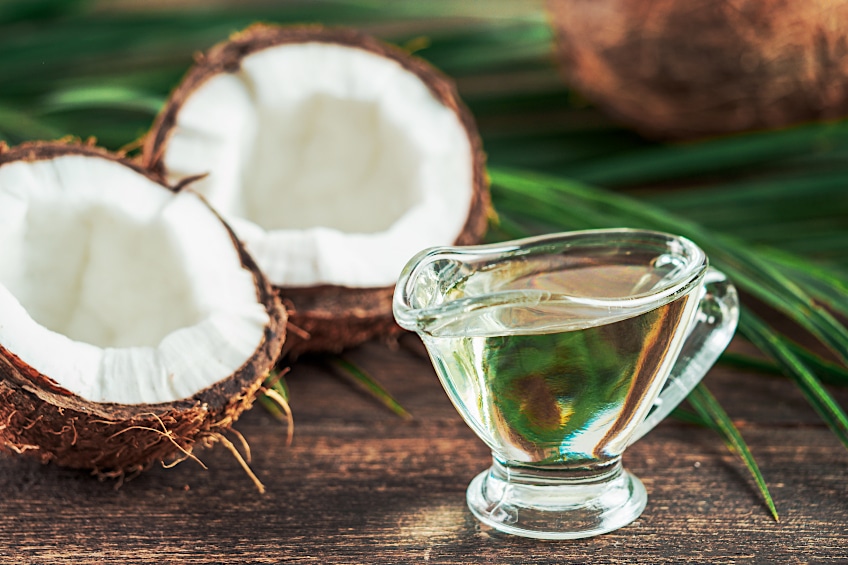
Makeup Remover
This is probably the best option for removing Sharpie marks from facial skin, especially if your skin is sensitive or delicate. You can either use makeup remover wipes or makeup remover for this purpose. Below are a few tips:
- Apply the makeup remover using a cotton wool ball or pad.
- Massage the product into the marked skin using small circular movements for a few seconds.
- Rinse well in warm water.
How to Get Crayola Markers Off Skin
Crayola markers are a popular non-permanent craft option for kids. A big box of these is sure to keep them occupied for hours, but they may end up decorating each other after a while. Although Crayola markers are classed as “washable markers”, they can leave marks on your child’s skin that may be difficult to remove. If a good old fashioned scrub in the tub has not worked or it is not possible as you are about to leave the house, then you could try one of the following tips on how to get Crayola marker off skin:
- Make-up remover – This is a great option if your kid has painted his or her face with Crayola markers and the marks are close to the eye area.
- Baby wipes – Another gentle alternative especially for those tiny hands and faces.
- Sanitizer – A small amount applied to the Crayola mark should activate the dried ink which can then be easily removed with a cotton ball. Just avoid using this on facial and/or sensitive skin.
- Baby oil – You are most likely to have a bottle of this stuff in the cupboard if you have toddlers around. It can be very effective for removing all sorts of marks from their skin, including permanent markers while moisturizing it at the same time!
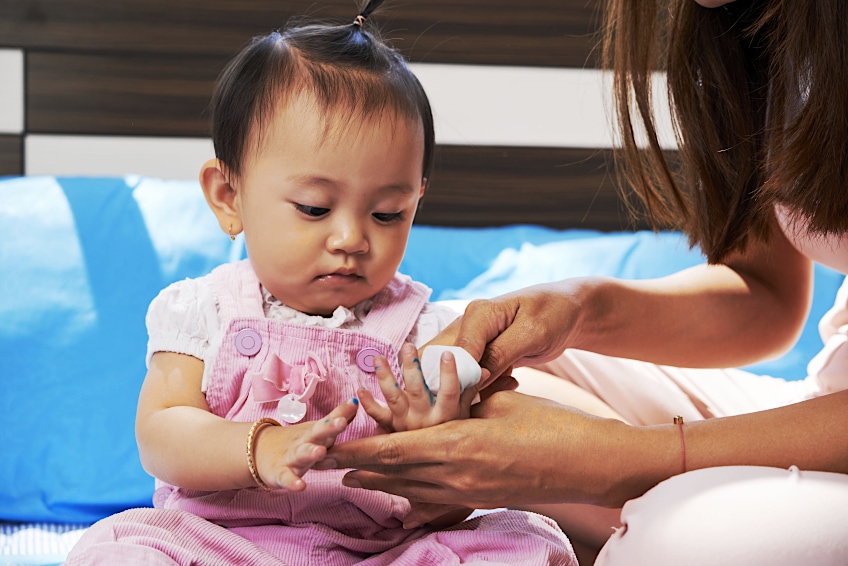
Tips and Tricks on Using and Removing Permanent Marker
- Use a stencil to master your body art and create attractive designs with little effort – no mess, no fuss!
- Shake up your game day look with some face flags or team logo tattoos using a few vibrant body markers.
- Add some extra ‘glow’ to your party vibe for that next show or festival using some UV Neon skin markers – ideal for face and body painting.
- If using a harsh substance to remove Sharpie stains from your skin, always remember to wash the cleaned area afterward using lukewarm soapy water.
- If your skin is raw from sunburn or scrubbing, avoid using any other harsh methods or substances. Rather use a gentler product or wait for your skin to heal before trying to remove the marks.
- Residual surgical pen marks? Use rubbing alcohol to remove. If not completely removed, it should fade with bathing after a few days.
- Gentle exfoliation using a sugar scrub or loofah every two to three days (depending on skin sensitivity) helps to get rid of dead skin cells. This will also help to make permanent marker stains fade quicker.
- Use a moisturizer after all that scrubbing. Your skin is likely to be a bit dry and raw after removing permanent marker. Apply a good Aloe Vera gel or fragrance-free lotion to give your skin some TLC after scrubbing.
It is good to remember that life is messy and to expect the unexpected but it is also encouraging to know there are great solutions available for some of those messes. We hope that this article has been helpful to you in getting rid of the little messes sometimes created by those handy marker pens.
Frequently Asked Questions
Is It Healthy to Have Permanent Marker on Skin?
No. Permanent marker on skin is not really safe. Many permanent markers contain chemicals and substances that can be harmful to your skin. At best, these substances may cause an allergic skin reaction or rash and, at worst, they can be toxic and damaging to your organs. It is best to avoid using permanent markers on your skin wherever possible.
Are Sharpie Tattoos Safe?
Sharpie does not endorse the use of their pens on the skin for body art such as touching up permanent tattoos, creating temporary tattoos, lip liner, or eyeliner. While some Sharpies are non-toxic, others contain neurotoxins that can have harmful effects on your organs. To be safe, avoid using Sharpies on your face or anywhere on your body. Perhaps consider using a specialized option such as a tattoo marker or body art pen.
What to Avoid When Removing Permanent Marker Stains From Skin?
Many solvents are highly effective for removing all sorts of stubborn stains from all sorts of surfaces. But permanent marker on the skin is a different problem altogether and the fact that it is in itself harmful to your health, you will want to avoid using any substances that may cause further damage. If you are going to use rubbing alcohol, make sure it is ethanol-based – which is safer than isopropyl alcohol. Bleach, baking soda, and solvents, such as benzene, acetone, toluene, or methanol are best avoided.
How Long Do Permanent Marker Stains Stay on Skin?
If you do not make any direct attempts to remove permanent marker or Sharpie stains from your skin, depending on the composition of the ink, it can take two to three days for the marks to fade on their own.
Can You Get Skin Cancer from Drawing on Yourself?
No. To be at risk of cancer in such an instance, you would have to have covered your entire body with permanent marker ink and that ink would have had to contain thinners or carcinogens. The likelihood of either of these occurrences is pretty much non-existent. Permanent marker ink does not contain thinners or carcinogens and does not penetrate the skin deeply enough or cause any cell mutation.
Larissa Meyer is a 32-year-old mother from Michigan and creative spirit since childhood. Her passion for painting and drawing has led her to an education as an illustrator and a career as a freelance graphic designer. She has a Bachelor of Fine Arts in Illustration and a degree in Graphic Design. Larissa is a talented artist who is able to master a wide range of styles and techniques to bring her artistic vision to life. Her greatest passion is currently fluid painting and epoxy resin art. Larissa’s love for art and her knowledge and experience in illustration make her the perfect Creative Director for our fluid-painting.com team. She is the creative head of our team and shares her passion and knowledge with our community through articles and tutorials.
As a mother of a 2-year-old daughter, Larissa also understands the importance of fostering creativity in early childhood. She uses her experience and knowledge to help other parents inspire their children and develop their artistic skills as well.
Learn more about Larissa Meyer and about us.
